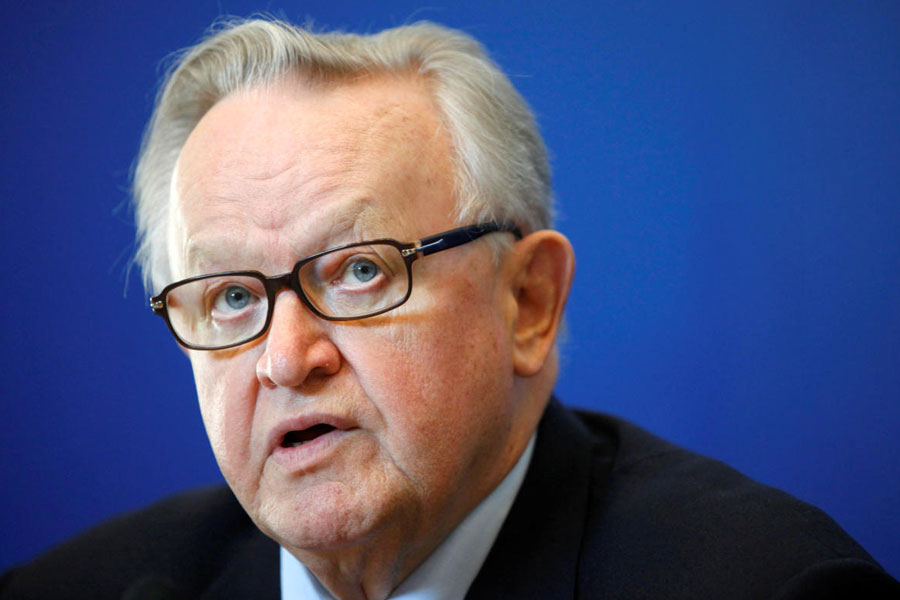Nobel Peace laureate Martti Ahtisaari, who served as Finland's 10th president between 1994 and 2000, died on Monday at the age of 86, the Finnish president's office said in a statement.
Ahtisaari was celebrated around the world for brokering peace in conflict zones in Kosovo, Indonesia and Northern Ireland. He refused to accept that wars and conflicts were inevitable.
"Peace is a question of will. All conflicts can be settled, and there are no excuses for allowing them to become eternal," Ahtisaari said when he accepted the Nobel award in 2008.
His global fame boosted the image of Finland as it emerged from the shadow of the former Soviet Union.
At home, Ahtisaari was always a political outsider. But it was that very lack of political ties helped him to win Finland's first direct presidential election, in 1994, at the helm of the opposition Social Democrats.
As president, he supported Finland's European Union membership and encouraged voters to support the 1994 accession referendum, which passed with 57 percent support.
Opponents criticised his frequent travels - his nickname was "Travelling Mara", a common diminutive for Martti - and said he should focus more on domestic issues as Finland wallowed in recession triggered by the collapse of the Soviet Union, then its main trading partner.
In later years he strayed from his party's line by encouraging Finland to become a fully fledged NATO member. That took place years before Finland's eventually joined the alliance in 2023, in response to neighbouring Russia's invasion of Ukraine.
'Eternally displaced'
Ahtisaari was born in 1937 in Viipuri, now part of Russia, and his family was forced to flee when Soviet forces attacked when he was two.
He said those early years made him "an eternally displaced person" sensitive to the plight of refugees.
After military service, he became a teacher and took part in an educational project in Pakistan, an experience he said opened his eyes to the world outside his native country.
He joined Finland's Ministry for Foreign Affairs in 1965 and was appointed Finnish ambassador to Tanzania in 1973.
One of his first major diplomatic achievements was helping Namibia gain independence after years of bloody conflict with South Africa.
He served as U.N. commissioner for Namibia from 1977 to 1981 and served on and off in the region in various roles up to the early 1990s.
Acting as point man for the EU, he persuaded Yugoslav President Slobodan Milosevic in 1999 to accept NATO's terms for ending the Kosovo air campaign.
He continued to focus on conflict resolution after leaving the presidency in 2000, helping advance the Northern Ireland peace process as a weapons inspector.
He set up the Crisis Management Initiative (CMI), an independent organisation focused on conflict resolution. The group facilitated a peace process between the Indonesian government and the Free Aceh Movement in 2005. His mediation efforts, over seven months, led to an agreement ending a three-decade-long conflict in Aceh.
Later that year, he returned to the Balkans as a U.N. special envoy. He is widely credited for helping pave the way for Kosovo's independence with the backing of western countries.
Several months afterwards, the Nobel committee gave him the peace prize, citing work on multiple continents over more than three decades.
He is survived by his wife, Eeva, and son, Marko, a tech entrepreneur and former head of design at Nokia.










